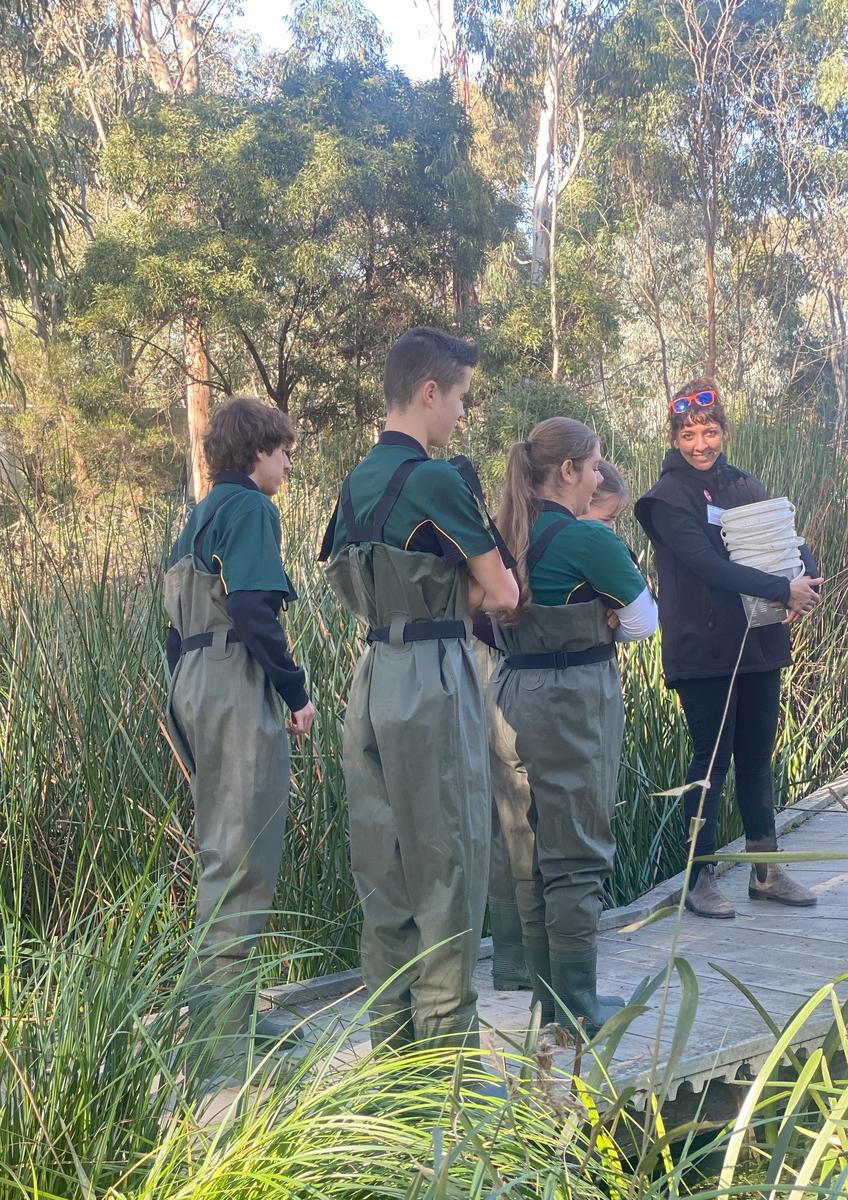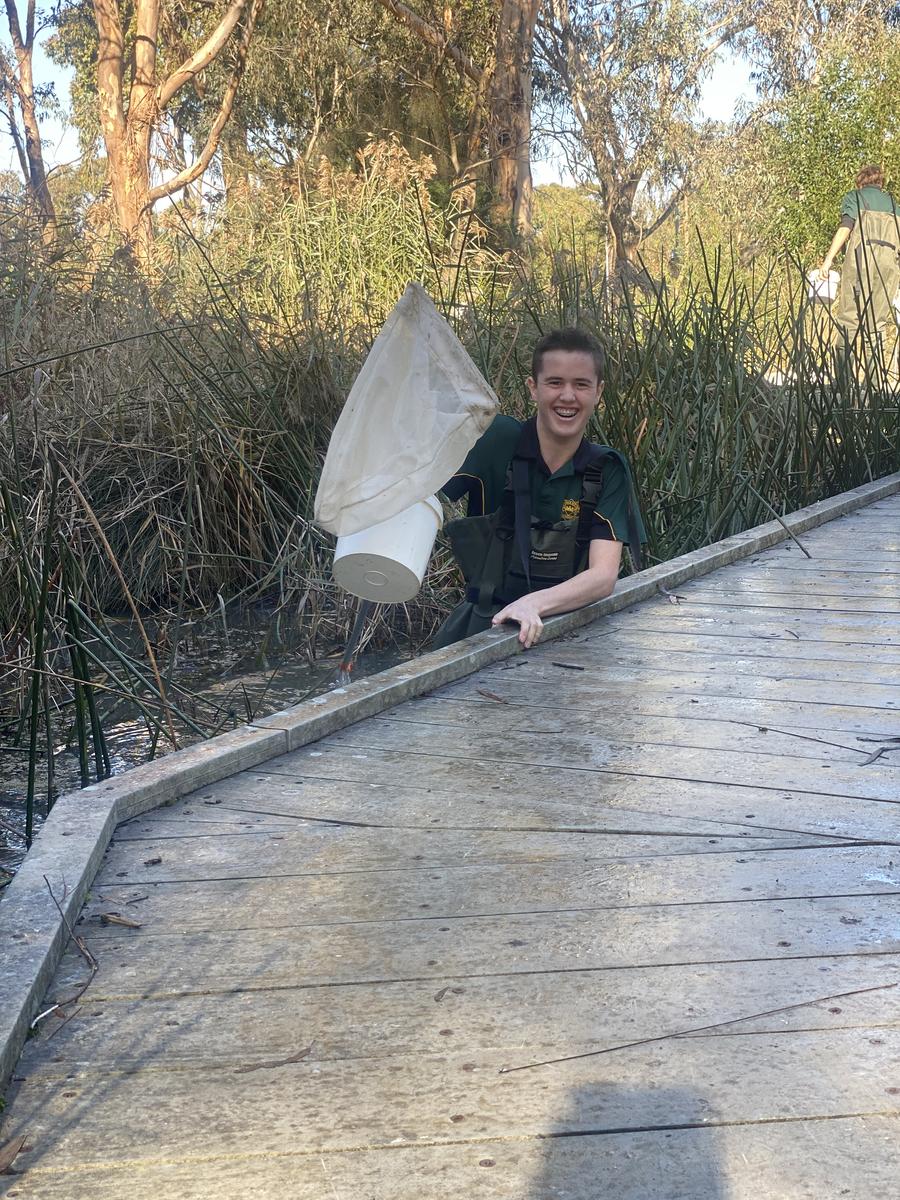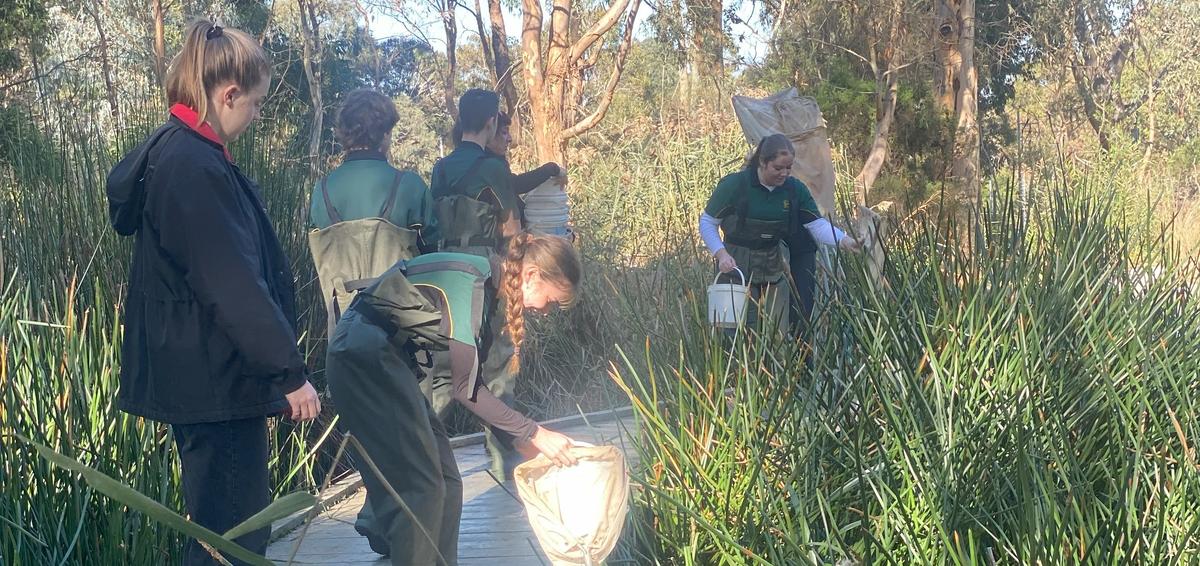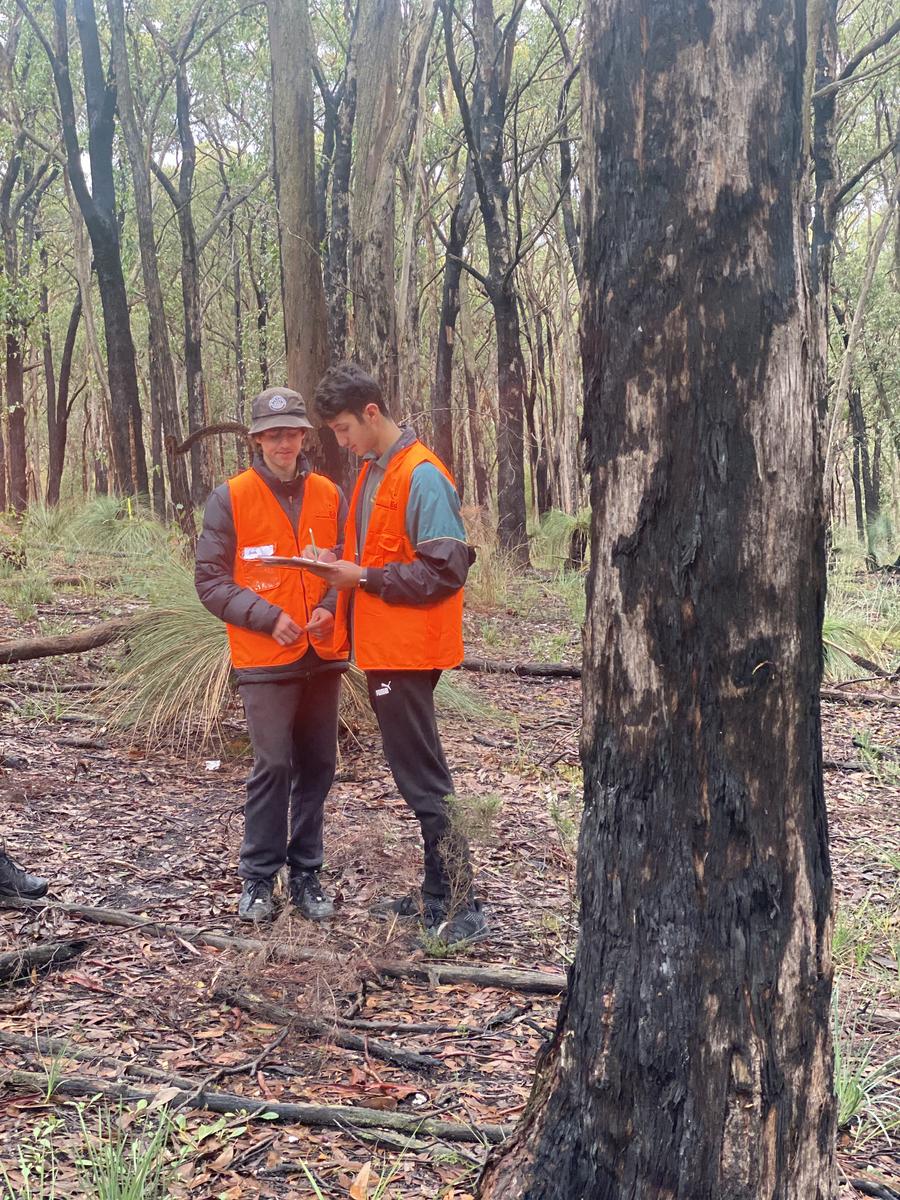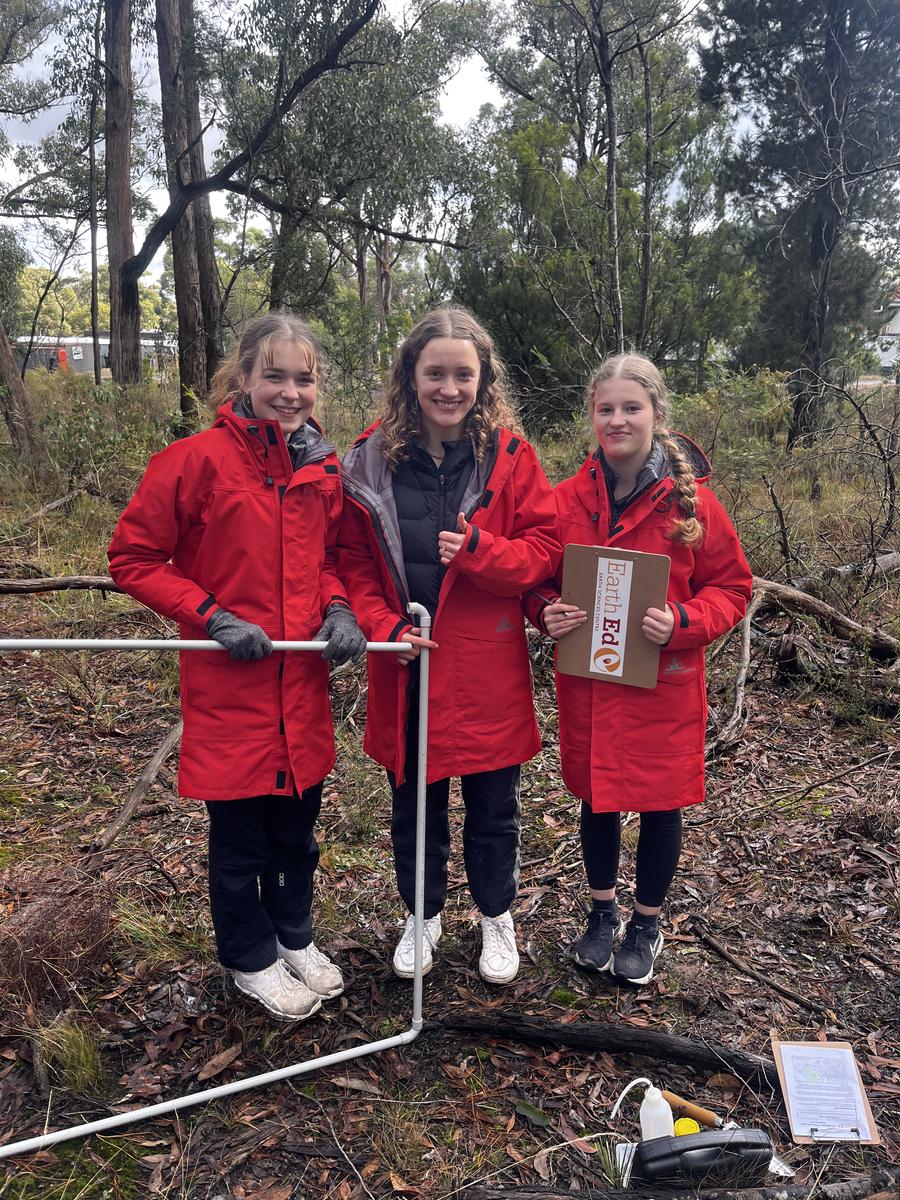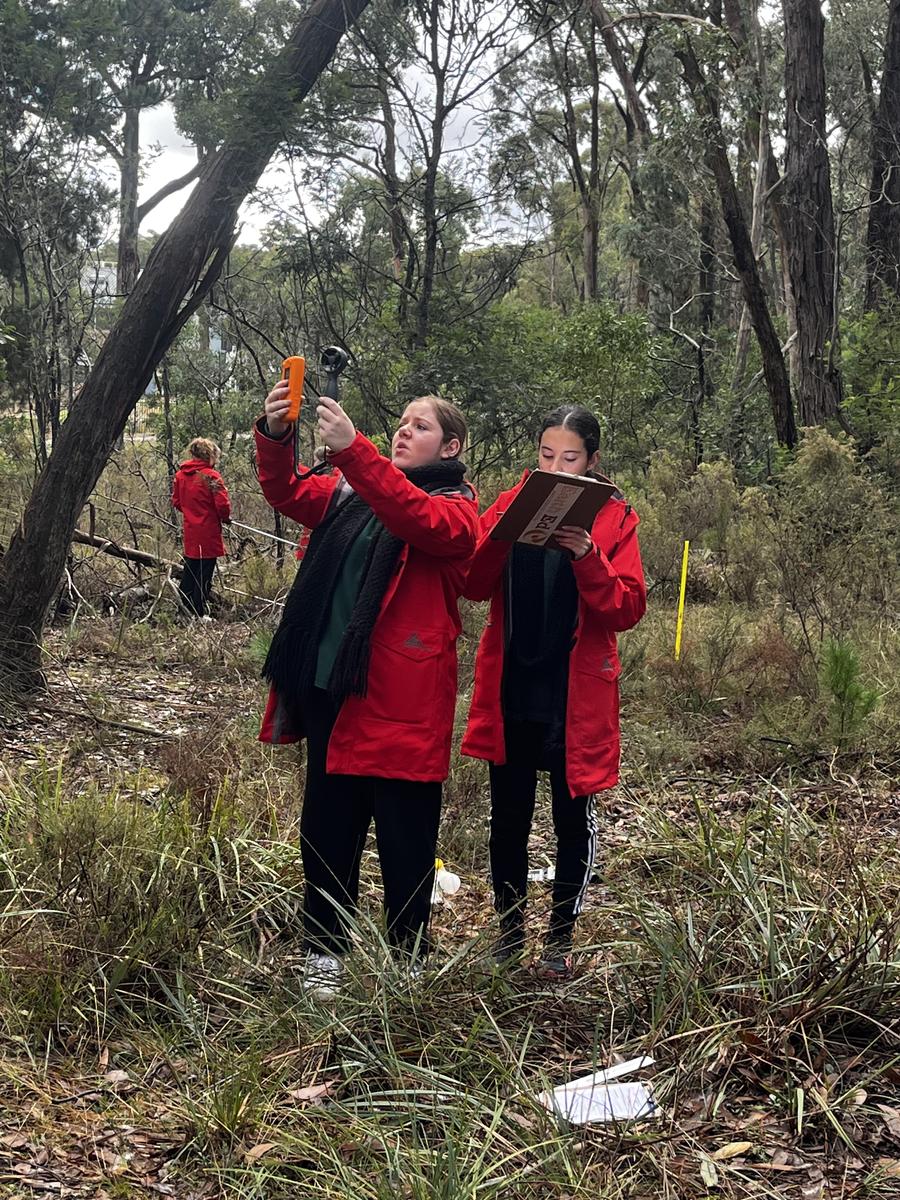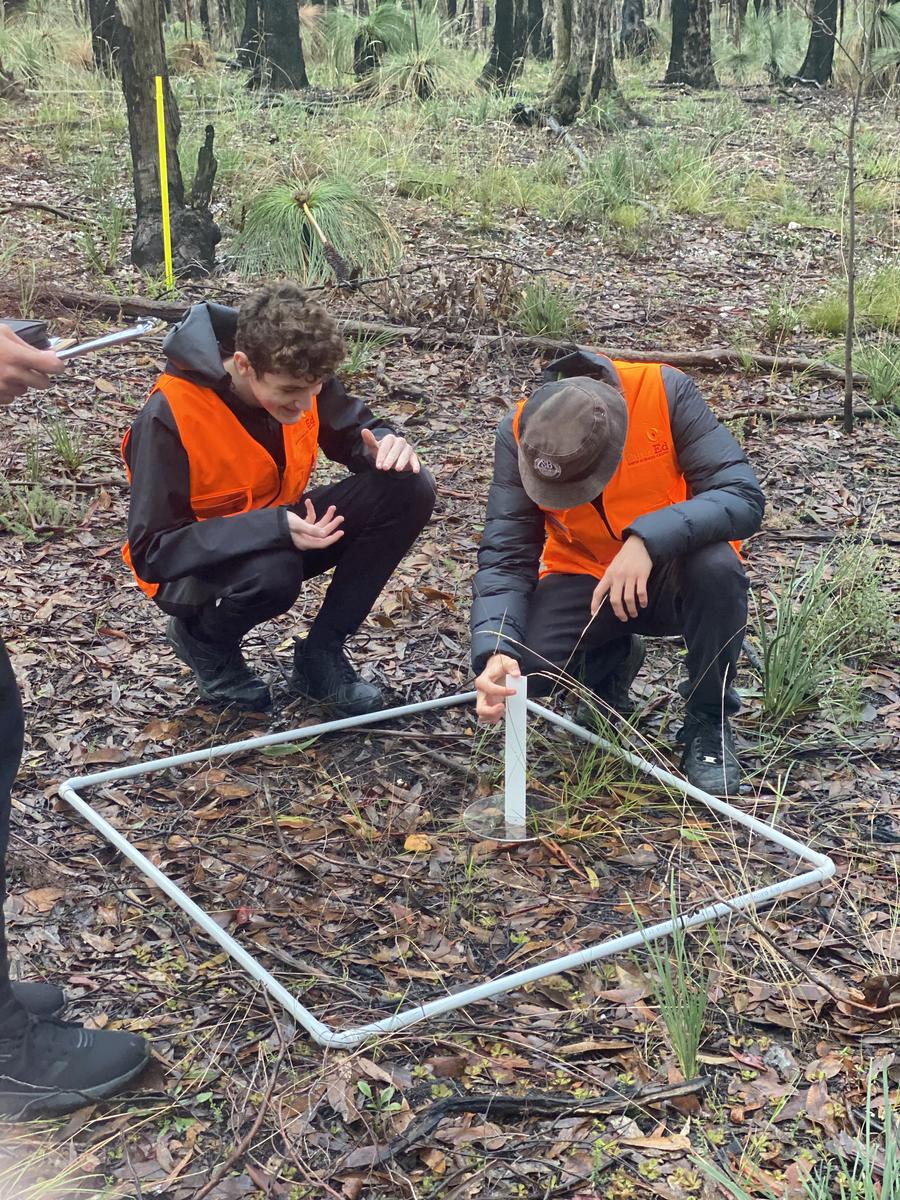Year 11 Environmental Science
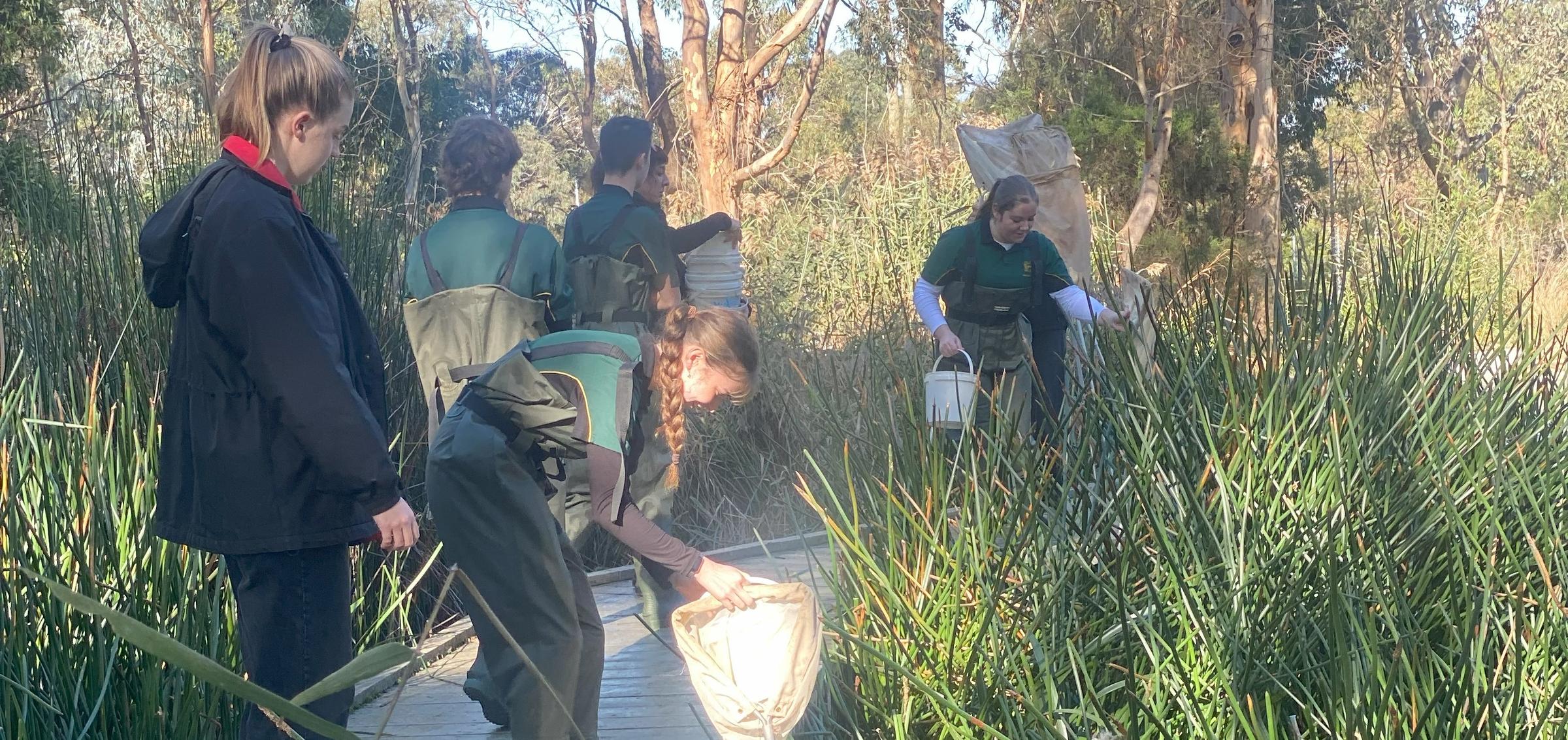
Exploring the Wonders of Nature: Year 11 Environmental Science Excursions
Our Year 11 Environmental Science students recently embarked on two exciting excursions that allowed them to delve into the captivating world of ecology and wildlife.
In the first excursion, our students participated in the Earth Ed Fire Ecology program, travelling all the way to Ballarat and the Woowookarung National Park. This pristine natural reserve became their outdoor classroom, offering a unique opportunity to study the fascinating differences between burnt and unburnt ecosystems.
Equipped with quadrats, pH meters, and data loggers, the students ventured into the park, dividing into groups to conduct thorough scientific investigations. With guidance from expert ecologists, they carefully placed quadrats in predetermined locations, systematically observing and documenting the biodiversity and vegetation composition in both burnt and unburnt areas. This hands-on approach allowed them to witness the remarkable regrowth and succession processes that occur after fires, as well as appreciate the ecological dynamics at play.
The following week, students were out again visiting the renowned La Trobe University Nangak Tamboree Wildlife Sanctuary, dedicated to the preservation and study of native Australian wildlife.
Students had the opportunity to collect valuable information about a local waterway within the park. Equipped with turbidity testers, pH meters, and oxygen testing kits, they gathered data to assess the water quality and understand the health of the ecosystem. Some students even cautiously entered the pond wearing waders and used nets to carefully fish out different invertebrates. This hands-on exploration allowed them to examine the biodiversity and health of the waterway and analyze the interdependencies between the organisms and their environment.
Through these activities, our students gained insights into the delicate balance of aquatic ecosystems and the impact of human activities on water quality. They learned how factors like turbidity, pH, and oxygen levels influence the survival and distribution of aquatic organisms. This practical experience equipped them with a deeper understanding of the importance of responsible water management and conservation efforts.
Both excursions have allowed the Year 11 Environmental Science students to gain a wealth of knowledge about fire ecology, wildlife conservation, and water quality – bringing what they learn in the classroom to life. We would like to extend our thanks to the staff at Earth Ed and La Trobe University for providing an enriching and educational experience for our students.

